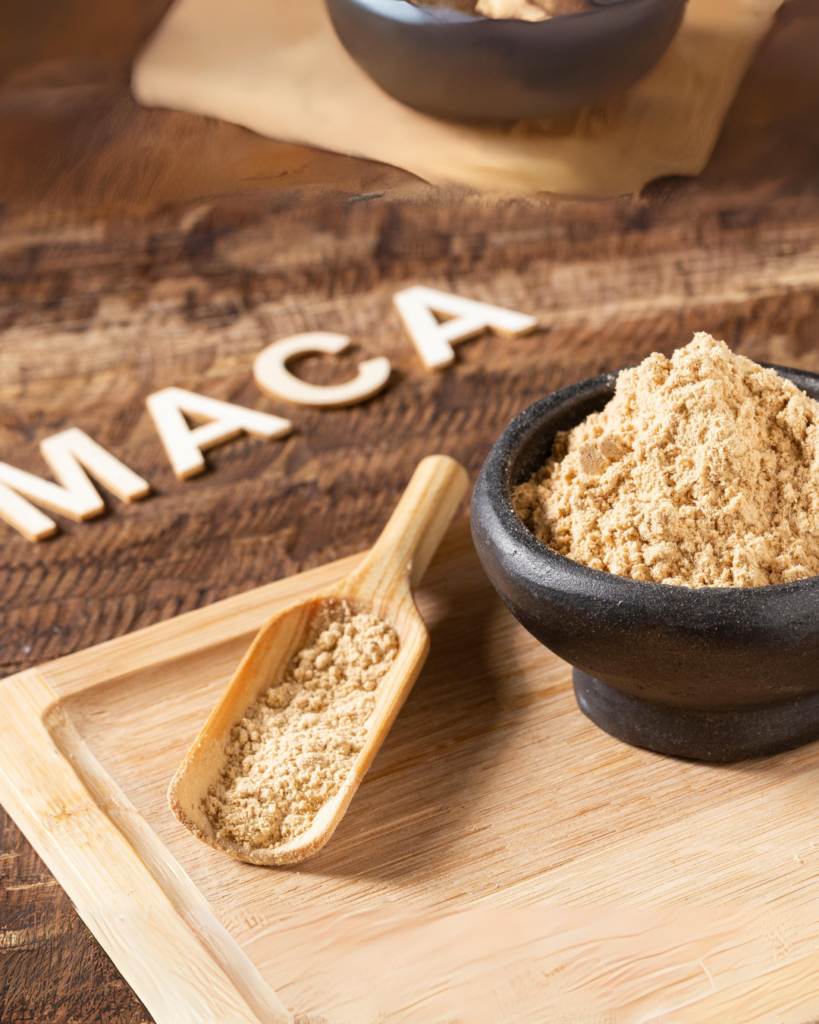
In the world of natural remedies and herbal supplements, there are a few hidden treasures that have captured the attention of those seeking to enhance their health and well-being. Among these, one name has been making waves (especially on TikTok recently) for its potential to boost fertility and reproductive health: maca root.
While the use of maca root as a fertility aid may seem like a recent trend, its history dates back thousands of years to the high-altitude regions of the Andes Mountains in South America.
Maca root, scientifically known as Lepidium meyenii, is a cruciferous plant native to the Peruvian Andes, where it has been cultivated for centuries. Traditionally, Maca was not only a dietary staple for the people of this region but also held a special place in their culture and history. It has long been thought to aid in improving stamina and fertility.
In this blog post, we will delve into the evidence surrounding Maca root and its potential benefits or harms for fertility.
Nutritional Profile and Potential Benefits
Maca Root now comes in various forms – powders, capsules, and extracts. But this plant actually belongs to the brassica family and is related to plants such as cabbage and water cress, and looks kind of like a turnip!
Maca was always traditionally taken in a dried form, and continues to be the same today. The nutritional composition of dry maca is approx 10% is protein, 59% is carbohydrate, 2% is fat and 8% is fibre. Minerals found in Maca include Iron, Calcium, Cooper, Zinc and Potassium, and Vitamins such as Vitamin C, Riboflavin and Thiamine.
So in terms of nutrition it does provide some robust nutritional value, but you could definitely obtain these nutrients from a range of your favourite foods!
Now lets dive into the claims and the evidence,
Maca as an Aphrodisiac
One of the topics that actually does have a little bit of evidence out there to support its claims is increased sexual desire (mainly studied in male participants). In studies involving otherwise healthy men who took either 1.5g or 3g of maca root daily, some fascinating findings emerged regarding its impact on aphrodisia (sexual desire). At the 4-week mark, there was a remarkable 24.4% increase in self-reported aphrodisia, which continued to rise to 40% at 8 weeks and 42.2% at 12 weeks. To put this into perspective, the placebo group reported only a 16.6% increase in aphrodisia at week 4, but this effect didn’t persist at either the 8-week or 12-week check-ins.
What’s even more intriguing is that this aphrodisiac effect extends beyond just the average person. Even experienced athletes, who were otherwise healthy, benefited from maca supplementation. Taking 2g of a potent 5:1 maca extract for just two weeks led to improved scores on a sexuality rating scale that was used in the study. This improvement was more pronounced when it came to dyadic sexual desire, which refers to sexual desire towards others, rather than solitary sexual desire. These findings suggest that maca root may have a positive impact on sexual desire, which could definitely be useful for someone on their fertility journey!
Maca to improve sperm quality and count
Studies in rats produced increased sperm count results after one day of use, while a study in human men showed a slight increase in sperm production and sperm motility.
When it comes to the intricate process of spermatogenesis (the production of sperm), different varieties of maca root show varying impacts. Among the maca types, Black Maca stands out for its reported benefits on sperm production compared to Yellow and Red Maca.
Maca to improve Female Fertility
Studies involving mice, rats, and even humans have shown that Maca extract doesn’t significantly impact serum oestradiol levels. Additionally, an in vitro assay conducted in a laboratory failed to reveal any proliferative effect on MCF-7 cells, suggesting that Maca might not have an oestrogenic effect ( with oestogen being an important female hormone). One fascinating discovery is that Maca extract seems to have a positive effect on the number of offspring in mice. This outcome is believed to be due to Maca supporting the survival of embryos. A similar pattern has been observed in rainbow trouts. Furthermore, ongoing research has hinted that red Maca extract, in particular, might enhance the quality of embryos in mice. But this hasn’t been replicated in human research.
Conclusion
To date, the health claims of Maca are still not well researched. There may be some benefit for male fertility, but it doesn’t seem to hold true for female fertility at this stage. Speak to your individual health care provider and dietitian for personalised advice to see if this supplement is right for you!
If you are looking for more support with a Senior Dietitian & Nutritionist book a call in for a chat today www.thenourishedbump.com.au/book-now
References:
doi: 10.1155/2012/193496
doi: 10.1016/2022/100326
doi: 10.5534/wjmh.220112
doi: 10.1039/C9FO02732G
Leave a Reply Cancel reply
Come say hi on Instagram @thenourishedbump
Whether you’re just starting to try, navigating pregnancy, or settling into new motherhood—I’m here to support you. Let’s work together to create a plan that feels good and gets results.